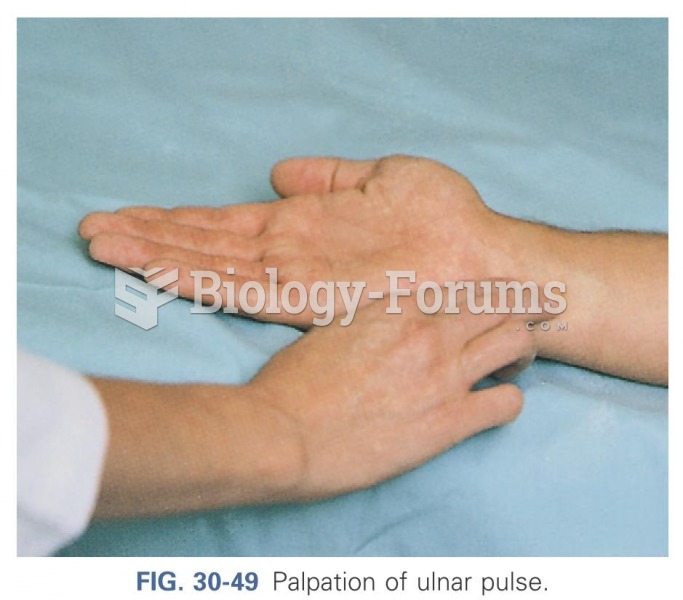|
|
|
Human stomach acid is strong enough to dissolve small pieces of metal such as razor blades or staples.
When blood is exposed to air, it clots. Heparin allows the blood to come in direct contact with air without clotting.
Alzheimer's disease affects only about 10% of people older than 65 years of age. Most forms of decreased mental function and dementia are caused by disuse (letting the mind get lazy).
Your skin wrinkles if you stay in the bathtub a long time because the outermost layer of skin (which consists of dead keratin) swells when it absorbs water. It is tightly attached to the skin below it, so it compensates for the increased area by wrinkling. This happens to the hands and feet because they have the thickest layer of dead keratin cells.
Urine turns bright yellow if larger than normal amounts of certain substances are consumed; one of these substances is asparagus.







